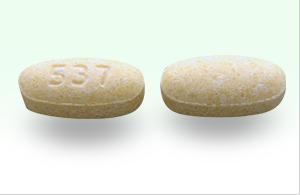Potassium Citrate Dosage
Medically reviewed by Drugs.com. Last updated on May 2, 2024.
Applies to the following strengths: 20 mEq/15 mL; 5 mEq; 10 mEq; 15 mEq
Usual Adult Dose for:
Additional dosage information:
Usual Adult Dose for Nephrolithiasis
Severe hypocitraturia (urinary citrate under 150 mg/day):
Initial dose: 60 mEq orally per day; either as 30 mEq two times a day OR 20 mEq three times a day with meals or within 30 minutes after meals or bedtime snack.
Mild to moderate hypocitraturia (urinary citrate over 150 mg/day):
Initial dose: 30 mEq orally per day; either as 15 mEq two times a day OR 10 mEq three times a day with meals or within 30 minutes after meals or bedtime snack.
Comments:
- The objective of therapy is to normalize urinary citrate (over 320 mg/day and as close to the normal mean of 640 mg/day as possible), and to increase urinary pH to 6.0 to 7.0.
- Add this therapy to salt limitation (avoidance of high salt foods and salt added at the table) and high fluid intake (for a urine volume of at least 2 liters/day).
- Measure 24-hour urinary citrate and/or urinary pH to determine adequacy of initial dosage and for effectiveness of dose changes.
- Doses of Urocit(R)-K over 100 mEq/day have not been studied and should be avoided.
Uses:
- Management of renal tubular acidosis with calcium stones
- Management of hypocitraturic calcium oxalate nephrolithiasis (any etiology)
- Management of uric acid lithiasis with or without calcium stones
Usual Adult Dose for Renal Tubular Acidosis
Severe hypocitraturia (urinary citrate under 150 mg/day):
Initial dose: 60 mEq orally per day; either as 30 mEq two times a day OR 20 mEq three times a day with meals or within 30 minutes after meals or bedtime snack.
Mild to moderate hypocitraturia (urinary citrate over 150 mg/day):
Initial dose: 30 mEq orally per day; either as 15 mEq two times a day OR 10 mEq three times a day with meals or within 30 minutes after meals or bedtime snack.
Comments:
- The objective of therapy is to normalize urinary citrate (over 320 mg/day and as close to the normal mean of 640 mg/day as possible), and to increase urinary pH to 6.0 to 7.0.
- Add this therapy to salt limitation (avoidance of high salt foods and salt added at the table) and high fluid intake (for a urine volume of at least 2 liters/day).
- Measure 24-hour urinary citrate and/or urinary pH to determine adequacy of initial dosage and for effectiveness of dose changes.
- Doses of Urocit(R)-K over 100 mEq/day have not been studied and should be avoided.
Uses:
- Management of renal tubular acidosis with calcium stones
- Management of hypocitraturic calcium oxalate nephrolithiasis (any etiology)
- Management of uric acid lithiasis with or without calcium stones
Renal Dose Adjustments
Contraindicated in renal insufficiency (glomerular filtration rate under 0.7 mL/kg/min) and chronic renal failure.
- Patients predisposed to hyperkalemia may have a rise in serum potassium leading to possible cardiac arrest.
- Patients with renal insufficiency are at risk of soft tissue calcification and hyperkalemia.
Liver Dose Adjustments
Data not available
Dose Adjustments
Severe renal tubular acidosis or chronic diarrheal syndrome, where urinary citrate may be very low (under 100 mg/day):
- This drug may be relatively ineffective for these patients; higher doses may be required for a satisfactory response.
- Renal acidosis patients with high urinary pH may see a small rise in urinary pH with this drug.
Precautions
CONTRAINDICATIONS:
- Hyperkalemia or conditions predisposing patients to hyperkalemia (including chronic renal failure, uncontrolled diabetes mellitus, acute dehydration, strenuous physical exercise in unconditioned people, adrenal insufficiency, extensive tissue breakdown, or use of potassium-sparing agents such as triamterene, spironolactone, or amiloride); a further increase in serum potassium may cause cardiac arrest.
- Patients with cause for arrest or delay of tablet passage through the gastrointestinal tract (e.g. delayed gastric emptying, esophageal compression, intestinal obstruction or stricture, anticholinergic medication use)
- Peptic ulcer disease because of the ulcerogenic potential
- Active urinary tract infection (with either urea-splitting or other organisms, with either calcium or struvite stones); bacterial enzymatic degradation of citrate may attenuate this drugs effect, and increased urinary pH from this drug may promote bacterial growth.
- Renal insufficiency (glomerular filtration rate under 0.7 mL/kg/min); because of the risks of soft tissue calcification and hyperkalemia.
Safety and efficacy have not been established in patients younger than 18 years.
Consult WARNINGS section for additional precautions.
Dialysis
Data not available
Other Comments
Monitoring:
- Measure 24-hour urinary citrate and/or urinary pH to determine adequacy of initial dosage and for effectiveness of dose changes.
- Severe hypocitraturia patients should also have urinary citrate and/or urinary pH monitored every 4 months.
Frequently asked questions
More about potassium citrate
- Check interactions
- Compare alternatives
- Pricing & coupons
- Reviews (7)
- Drug images
- Side effects
- During pregnancy
- Drug class: urinary pH modifiers
- En español
Patient resources
Other brands
Professional resources
Other brands
Related treatment guides
Further information
Always consult your healthcare provider to ensure the information displayed on this page applies to your personal circumstances.


